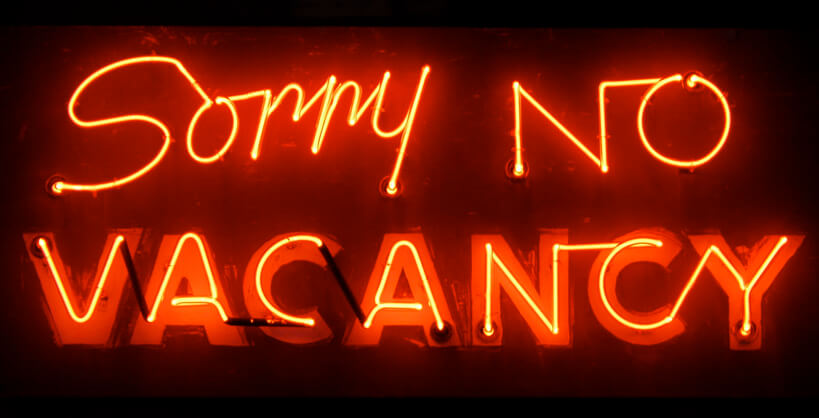
San Francisco lawmakers look to enact a punitive vacancy tax to coerce landlords into renting out underutilized units
San Francisco voters already approved a tax on vacant storefronts, a penalty that went into effect this year. Will voters have the appetite this fall to tax vacant homes?
Supervisor Dean Preston and tenants' advocates are busy garnering the 9,000 signatures needed for a ballot measure that would penalize owners of buildings with three or more units when at least one unit has been unoccupied for more than six months in one year.
This is really part of a larger assault on landlords who do not use their properties for the public good and antipathy towards investors who have a business model of holding a property vacant in order to resell it later on.

"These folks who are buying and selling housing in San Francisco as if they're buying and selling stocks on the stock market. They couldn't care less about providing homes for anyone, and we are going to put an end to it with the empty homes tax."
Read our earlier article: Laws and public policy surrounding rental properties look like a modern-day Robin Hood.
Fuzzy math?
Proponents of the vacancy tax are armed with a report by the city's Budget and Legislative Analyst that San Francisco has more than 40,000 vacant homes as of 2019, yet what "makes for good headlines and viral sound bites, the notion that there are 'more than 40,000 vacant homes in San Francisco' is not only misleading but represents a fundamental misunderstanding, if not misrepresentation, of the underlying data and market at hand," according to a scathing article on SocketSite.
If San Franciso slaps a tax on owners who keep their properties empty too long, it will be in a rather exclusive list of cities with these types of taxes, with Oakland and Vancouver, B.C., Canada being the closest examples.
Enacted in 2017, Vancouver's levies on "ghost homes" raked in a lot of revenue but rental inventory hasn't budged and rents have risen. While vacancy taxes are good political theatre, there is no compelling evidence that housing has gotten any more affordable.
Time and time again, taxation has proven to be a failed concept when trying to address the housing dearth without confronting development costs and getting to the root issue of not building more units. Brendan Coates, the economic policy program director at think tank Grattan Institute in Melbourne, says the political optics look good but the economic impact is negligible.
“Vacant property taxes fall into the bucket of something that sounds good but won’t make that big a difference in practice ... It is a distraction from the main game.”

It used to be that San Francisco was the undisputed champion of tenant protections and its draconian rent and eviction controls would be exported to the East Bay. Yet from banning criminal background checks in rental applications, the most stringent eviction moratoriums anywhere, and a host of other tenant protections, we have steadily seen the East Bay reverse that role, with pioneering initiatives becoming the model for San Francisco. Penalizing empty homes is one such idea.
Read our 2018 blog: Vacant property owners a whipping boy with new tax
How to administer and enforce the program
If San Francisco's vacancy tax comes to fruition, it will face the same challenges as Oakland's Measure W.
Exactly how is vacancy defined? Will we have housing police peep through windows to see if a unit is occupied? What will be the cost of the monstrous bureaucracy?
Perhaps a better policy would be to remove maddening regulations so that landlords can actually build
While Oakland's vacancy tax generates revenue for homelessness services, It's a bit ironic that an Oakland nonprofit led by formerly and currently unhoused people was saddled with a $6,000 vacancy tax when they opened their first tax bill and ran into multiple barriers to building housing.
At every turn, they were met with expensive permits required by the city, parking requirements, and a whopping $32,000 affordable housing impact fee to boot. Read more ›
San Francisco’s labyrinth of rules is no easier or cheaper to navigate. The reality is, not all owners of properties deemed to be underutilized by bureaucrats are “greed-fueled speculators.” In fact, many landlords would build if it wasn’t so cumbersome and have no choice but to let their properties languish.
Under San Francisco’s proposed vacancy tax, a property undergoing renovation is exempt, but just how easy is it to renovate? We know of many owners who would welcome the opportunity to be fixer-uppers and optimize their real estate investment if it wasn’t so costly and complicated to do so in a vexing regulatory regime.
